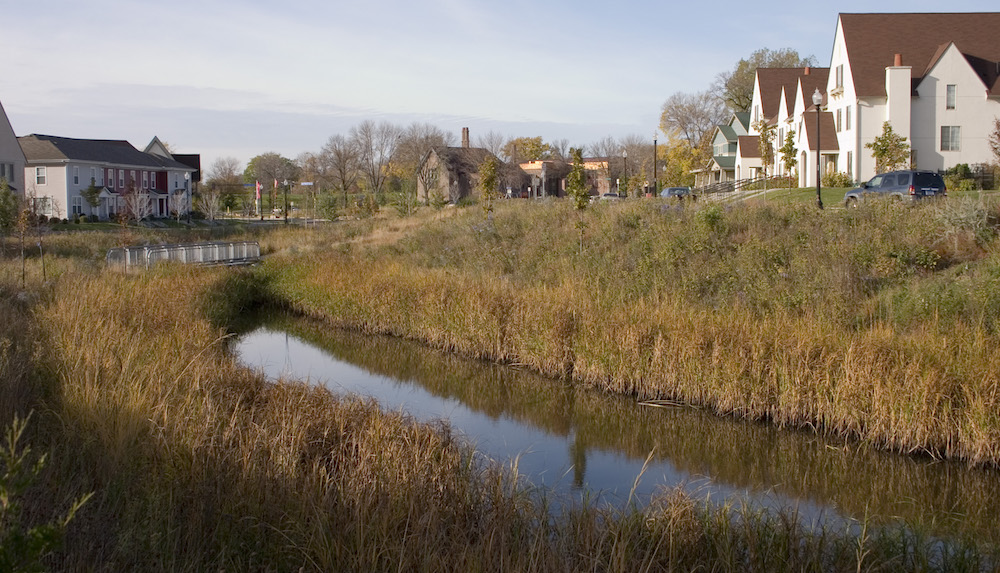The Environmental Protection Agency’s has proposed new National Pollution Discharge Elimination System (NPDES) general permit requirements regulating stormwater discharges from construction activities.
The proposal applies to construction sites of one or more acres, or less than one acre, but part of a larger development. The proposal would:
- Prohibit hazardous substances, such as paint or caulk containing polychlorinated biphenyls (PCBs) from authorized non-stormwater discharges of external building washdown waters.
- Require permittees to include the EPA’s contact information in public notices that are already required to be posted in a prominent location near construction sites.
- Require permittees to cover or use another method of temporary stabilization for inactive soil stockpiles and land clearing debris piles where the piles will be unused for 14 or more days.
- Require permittees to keep waste container lids closed (or provide some other secure cover where containers do not have lids).
- For demolition of structures with at least 10,000 sf of floor space built or renovated before 1980, require permittees to implement controls to minimize the exposure of PCB-containing building materials to precipitation and stormwater.
- Require permittees to state on their Notice of Intent (NOI) form the type of construction activities that will be involved.
These potential permit changes could significantly increase the time, effort, and resources required to comply with stormwater management obligations, according to an article by the law firm Dykema, Gossett PLLC.
Related Stories
| Oct 11, 2012
OSHA launches pilot program for alternative dispute resolution on whistleblower complaints
The Occupational Safety and Health Administration (OSHA) is launching an alternative dispute resolution (ADR) pilot program for complaints filed with OSHA's Whistleblower Protection Program.
| Oct 11, 2012
Bill promotes investment in commercial, multifamily retrofits
The Commercial Building Modernization Act recently introduced in the Senate would extend and streamline a current tax deduction to encourage commercial and multifamily residential building owners to perform comprehensive energy-efficient retrofits.
| Oct 11, 2012
Morristown, N.Y., settles code violation dispute with Amish
The town of Morristown, N.Y., has dropped charges of building code violations against local Amish communities to settle a First Amendment complaint.
| Oct 11, 2012
Mesquite, Nev., rebels against state-mandated energy code
The city council of Mesquite, Nev., voted against adopting a new energy efficiency code adopted by the state.
| Oct 11, 2012
Bloomingdale, N.J., restricts ground solar and wind energy installations
The borough of Bloomingdale, N.J., recently adopted regulations for solar-energy and wind energy systems.
| Oct 3, 2012
Bill introduced to extend home energy efficiency tax credit
A bill to extend the expired residential energy efficiency tax credit for installing qualified furnaces, boilers, central air conditioners, and heat pumps was recently filed in the U.S. House of Representatives.
| Oct 3, 2012
OSHA publishes more detailed information on variances
The Occupational Safety and Health Administration (OSHA) enhanced its variances Web page to improve public understanding of the variance approval process and increase access to the agency's decisions regarding variance requests.
| Oct 3, 2012
Online program computes energy savings from green roofs; compares savings with other options
A free online tool can calculate the amount of energy savings from installation of a green roof. Portland State University‘s (PSU’s) online Green Roof Energy Calculator can be used for new or old structures.
| Oct 3, 2012
SERF, CSE launch a new accreditation for evaluation of building sustainability
The Society of Environmentally Responsible Facilities (SERF), a Chicago-based environmental building certification organization, and the Centre for Sustainability and Excellence (CSE) launched a new accreditation program that certifies professionals to evaluate buildings’ sustainable systems and practices according to SERF’s certification criteria.
| Oct 3, 2012
New version of Occupied Space Standard for DC microgrids in buildings released
The EMerge Alliance, an association leading the adoption of safe direct-current (DC) power distribution standards for commercial buildings, has updated the EMerge Alliance Occupied Space standard.















